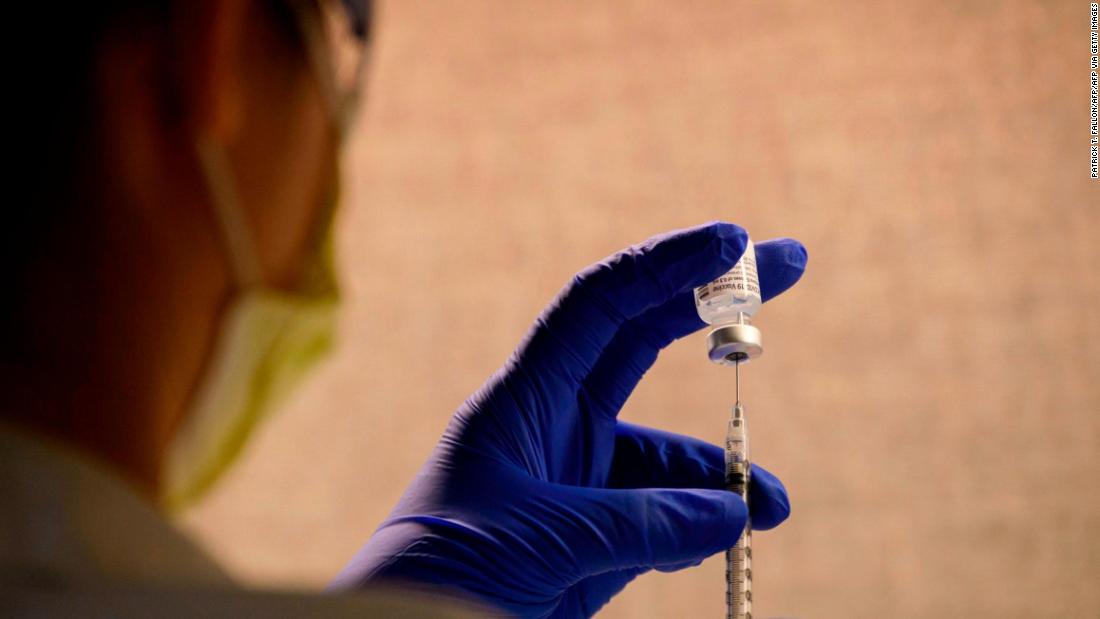
"This is the first variant I've seen during the whole pandemic where I took a step back and said: 'Whoa,' " he remembers.
Health officials have downplayed the possibility that the coronavirus vaccines won't work against the UK strain, but Worobey and other scientists thinks it's a possibility -- and it's just a possibility -- that this new variant might, to a small extent, outsmart the vaccines.
"This is the first variant I've seen where I think there is this burning question," said Worobey, head of the department of ecology and evolutionary biology at the University of Arizona.
Trevor Bedford, an associate professor in the vaccine and infectious disease division of the Fred Hutchinson Cancer Research Center, is also keeping a close eye on the UK variant.
Large clinical trials have shown that the vaccines by Pfizer/BioNTech and Moderna are about 95% effective against the novel coronavirus. Those trials, however, were done before the UK variant started its explosive growth.
Bedford said he doesn't believe the vaccine will be useless against the new UK strain, but that it might lower its effectiveness somewhat.
"It might decrease vaccine efficacy from 95% to something like 80% or 85%," he said. "It would be a modest effect, not a dramatic effect."
Health officials have said there's no reason to think the vaccine won't work against the new variant.
"[There is] no evidence to suggest, nor reason to believe, that it would evade our vaccines that we have right now," Assistant Secretary for Health Admiral Dr. Brett Giroir said Monday.
"This particular variant in the UK, I think, is very unlikely to have escaped the vaccine immunity," Moncef Slaoui, the head of Operation Warp Speed, said Sunday.
But some scientists point out that this mutation isn't like others that have preceded it.
"We shouldn't immediately jump to the conclusion (as many have done) that it isn't a concern," Kristian Andersen, a professor in the department of immunology and microbiology at Scripps Research Andersen wrote to CNN. "We simply don't know at this point in time -- but we should know more soon."
Bette Korber, a scientist at Los Alamos National Laboratory, has also been examining the variant.
"The mutations are indeed worrisome, they ALL need to be tested," Bette Korber, a scientist at Los Alamos National Laboratory, wrote to CNN when asked if the new mutation was a concern for the vaccine.
The UK variant has an unusually large number of mutations -- 14 changes and 3 deletions in its genetic code that impact the building blocks of its proteins, according to the CDC.
"This virus has like 17 unique mutations that haven't been seen elsewhere, and that is really unusual," Worobey said.
"The accrual of 14 lineage-specific amino acid replacements prior to its detection is, to date, unprecedented in the global virus genomic data for the Covid-19 pandemic," British scientists reported last week.
It's not just the number of mutations that has some scientists worried, but the way they might work together.
"Many of these mutations have been characterized in the lab and we know something about them. However, their combination (along with other changes) has not been characterized," Bedford tweeted on Tuesday.
Pfizer and Moderna are testing the vaccine to see if it works against the new variant.
Dr. Ugur Sahin, the CEO of BioNTech, said he does not think the new variant will cause a problem, but if it does, the vaccine can be updated.
"We should not forget that we have still the opportunity, if required, to adjust the vaccine exactly to this new virus variant, if this is needed," Sahin said. "I don't think that this is needed. But if it would be needed, there's a technical possibility to do that."
https://ift.tt/3aAylBP
Business
Bagikan Berita Ini














0 Response to "Genetics experts worry coronavirus vaccines might not work quite as well against UK variant - CNN"
Post a Comment